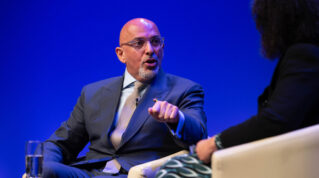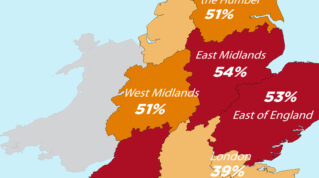A lot of the discussion about the DfE’s schools white paper, Opportunity For All, has focused on the 2030 target for all schools to be part of strong multi-academy trust. But what appears to have been overlooked is that strong local partnerships will be the key to its successful implementation.
In his foreword to the white paper, Nadhim Zahawi makes clear his belief in the importance of local collaboration to past and future successful education policy implementations. And that is to be welcomed, even if his comment is politically driven. After all, the secretary of state knows that he needs the support of local authorities where MAT presence remains small, such as Hampshire, where only 13 per cent of schools are academies.
Nevertheless, the white paper is noticeably clear that strong local partnerships will be key. It recognises that meeting the ‘parent pledge’ to provide effective assessment and support, especially for those pupils whose needs cannot be met entirely within the gates of mainstream schools, will require close partnership working between schools, MATs, LAs and other agencies.
What is less apparent currently is the role the DfE envisages local partnerships playing in supporting school improvement, either in the lead-up to a MAT-led system or once it is delivered. The DfE clearly sees MATs working with their schools as the key engine of improvement and recognises that collaboration with other schools, LAs and agencies is crucial.
Ministers also seem sensitive to the charge that a MAT system needs to be accountable to the locality. There will be a requirement to have local governing bodies for each school to reflect the identity of its local area and, acknowledging that the system is not doing well enough currently, the white paper proposes that LAs should hold the important role of coordinating improved collaboration.
Considering this is not a threat to Ofsted, and much less to rigour
But what the DfE has not done is to take the opportunity to develop a more locally based accountability system. Considering this is not a threat to Ofsted, and much less to rigour, but it could be an opportunity to lower the stakes that create such unsustainable pressure on schools.
The OECD’s director of education, Andreas Schleicher said in a 2019 interview that the English system’s biggest weakness is a lack of trust in its teachers. Since then, we have seen the worst recruitment and retention crisis the system has known, with research repeatedly showing that workload and our current accountability system are key barriers.
In research I undertook with Dr Susan Cousin, On Developing a New Locality Model for English Schools, all the high-performing systems we looked at internationally shared the view that local partnerships are critical for achieving excellence and equity. And many leading PISA school systems, including the ones we looked at, saw local accountability as crucial to delivering them. Moreover, our recruitment and retention woes are by no means shared by these other systems.
Which is not to say that localism is a panacea, but a focus on locality is especially important for many reasons. Place matters. Challenges and opportunities are different from area to area. Collaboration has the potential to create sustainable capacity. Actions can be taken more quickly and more cost-effectively. And the DfE is right ̶ identity matters too.
All these are good reasons why we cannot and shouldn’t try to copy other systems. But we can learn from them as we set about developing an English model of locality. It’s what the LocalED national project pilot I’m involved in is setting out to inform. The project, which began in April and will run for two years, will explore what kind of locality partnerships best support the inclusion of vulnerable pupils and school improvement. In addition, former Ofsted chief inspector Dame Christine Gilbert will be leading the project’s work on accountability to families, communities and the public.
Twelve per cent of all LAs and school-led partnerships have already applied to take part.So while the subject is overlooked at the top, one thing is certain: for those who will be tasked with implementing the white paper’s ambitions, local partnerships and accountability are already priorities.
















Your thoughts